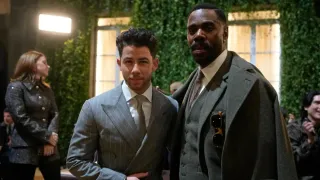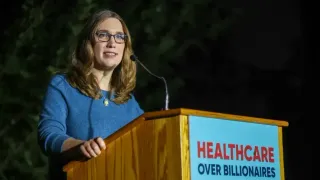October 15, 2014
Philippine Police Accuse US Marine in Murder Case
Jason St. Amand READ TIME: 2 MIN.
Philippine police filed a murder complaint Wednesday against a U.S. Marine, who has been accused of killing a transgender Filipino in an emotional case that is expected to test the country's relations with the United States.
Police Chief Inspector Gil Domingo said Marine Pfc. Joseph Scott Pemberton was the last person seen with the victim late Saturday, when they checked into a motel after meeting in a disco bar in Olongapo city northwest of Manila.
Jennifer Laude, whose former name was Jeffrey, was found with her head resting on the motel room's toilet bowl, apparently after being drowned, Domingo said. The criminal complaint was filed before government prosecutors, who would decide formal charges. There was no immediate comment from the U.S. Embassy.
Pemberton took part in combat exercises involving thousands of American and Filipino troops. He is being held on the USS Peleliu in the Subic Bay free port, about 80 kilometers (50 miles) northwest of Manila, according to U.S. military officials.
Dozens of activists burned a mock U.S. flag in a protest at the U.S. Embassy on Tuesday and tearfully demanded that Washington hand over Pemberton to Philippine authorities. They called for abolishing the Visiting Forces Agreement, which allows U.S. forces to join large-scale combat exercises with Filipino troops and which allows the U.S. to take custody of its soldiers who run afoul of Philippine laws.
The thorny murder case emerged while security ties are blossoming between the United States and the Philippines. The longtime military allies signed a new accord in April that allows greater U.S. military access to Philippine military camps, and both countries have been vocal critics of China's expansive territorial claims in the South China Sea.
"This is another test case of how strong and important this alliance is," political analyst Renato de Castro said.
The U.S. and Philippines disagreed over the custody of another Marine in a previous criminal case. The Marine was sentenced to life in prison on charges of raping a Filipino woman in 2005, but a Philippine appeals court overturned the conviction in 2009, allowing him to leave the country amid anti-U.S. protests.






